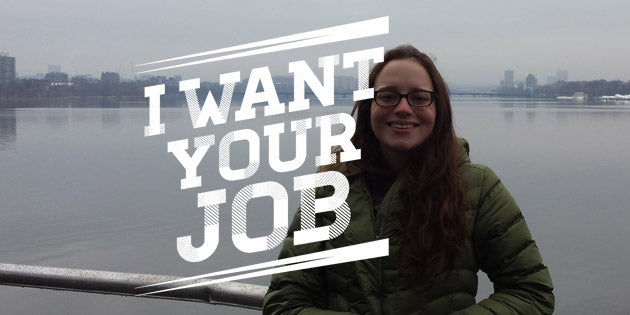College of Charleston alumna Dyanne Vaught ’13 was drawn to economics because of its relevance to the “real world.” Now she’s helping to define the nation’s monetary policy at the Federal Reserve – in a city (Boston) that she calls the “mecca” for economic research.
Q: What is your job title and how would you describe your job?
A: I am a research assistant at the Federal Reserve Bank of Boston. On any given day, I am collecting data, coding statistical processes, analyzing the results of these processes, or reading academic journal articles.
My job is to provide a senior economist and policy advisor with the data and analysis she needs to produce research that guides the creation of monetary policy, like recommendations for the primary credit rate, fed funds rate, and the quantity of bond and security purchases made by the Federal Reserve.
Q: How did you get this position?
A: By applying! At the recommendation of my advisors at the College, I had already interned at the Federal Reserve Board of Governors in Washington, DC, so this was no doubt an asset to me in securing the position.
It was a rather lengthy application, requiring a cover letter, a resume, a transcript, a technical writing sample, and multiple letters of recommendation. I had research experience and internships on my resume, a bachelor’s essay from which to pull a writing sample, and positive letters of recommendation from College of Charleston faculty.
Q: How did you get the internship at the Federal Reserve?
A: I went through an online application process, interviewed over the phone, and was invited to start work in DC within a week. My minor in data science stood out to the research group, who happened to be looking for someone familiar with both economics and data processing to look for new ways to store economic time series data.
RELATED: Find out about internships at the Federal Reserve.
It was a very open-ended internship with lots of brainstorming sessions and interviewing users of the data to look for new solutions to their problems. These interviews allowed me to both understand the common methods used in Fed research and to network with many Fed economists.
Q: How did you figure out that you liked economic research?
A: I came to college knowing I wanted to study economics; I was taking my first economics class in high school when the recession happened, and I was able to see how relevant the field was to the “real world.”
After getting to college, I realized there were people who devoted their careers to studying economic issues and decided to move in that direction. I was a double major in economics and mathematics with a minor in data science. While taking Monetary Theory and Policy in the economics department, I grew more interested in the specific fields of macroeconomics and monetary economics which led me to apply for an internship at the Federal Reserve, the institution responsible for determining and carrying out monetary policy in the US.
RELATED: Learn more about the College’s fast-growing data science program.
Q: What is your favorite part about your job?
A: An atmosphere centered on research and learning is the best part of working in the research department at the Boston Fed. There is little sense of competition and lots of collaboration. Because of the Fed’s commitment to learning, I have also been able to take courses at Harvard University and Boston University; being located in a city surrounded by some of the country’s most highly respected educational institutions has been an amazing opportunity.
Q: What did you do in college that helped prepare you for this career?
A: The coursework I took at the College was one of the biggest factors in my preparation for my job; I cannot speak highly enough of the math and computer science departments.
The College of Charleston offered me research opportunities from the time I was a freshman up until graduation. This is an opportunity that many college students don’t have, especially at larger schools. I worked with philosophy professor Jennifer Baker on a paper on virtue ethics in business. Then, I worked with economics professor Calvin Blackwell on a project involving an extensive literature review of the works of some of the most prominent 19th and 20th century economists. This provided me with a background in economic theory that many students do not have. We also completed a research project on the distribution of income and CEO compensation.
RELATED:Read about Dyanne’s research.
I was also able to study abroad at the London School of Economics, partially thanks to funding I was able to secure from the Honors College and the Center for International Education. Without the resources available to me at the College and the less concrete, but equally important, encouragement and advice from the faculty and staff, I would not be in this position.
Q: What advice would you offer current students?
A: Take advantage of the College’s biggest asset: faculty members who care about your success. Professors who make their undergraduate students a top priority are a rare find, and every department in Charleston is full of them.
And, surround yourself with peers who are equally motivated. This will be a valuable resource on days when you’ve lost your drive; there is nothing as encouraging as focused, supportive friends who are accomplishing big things.





